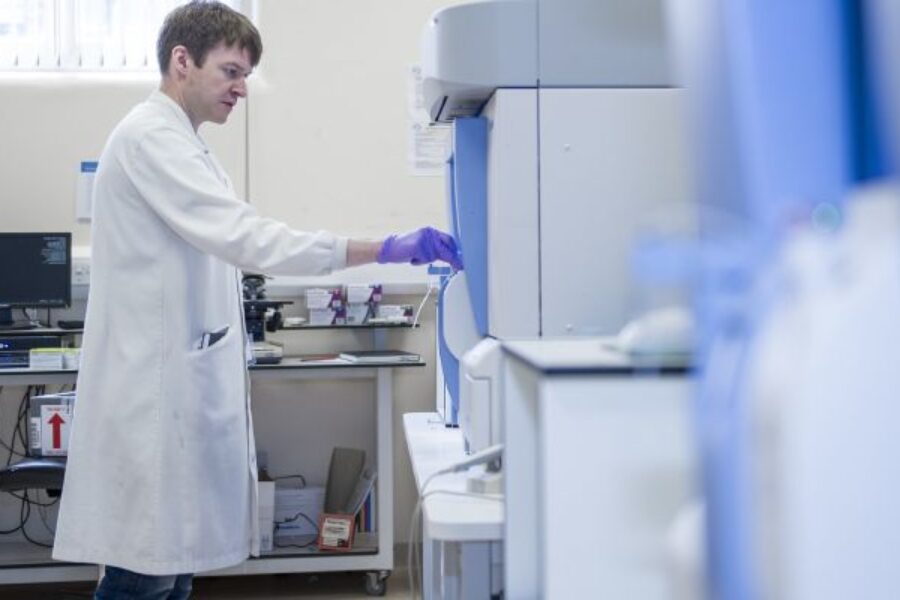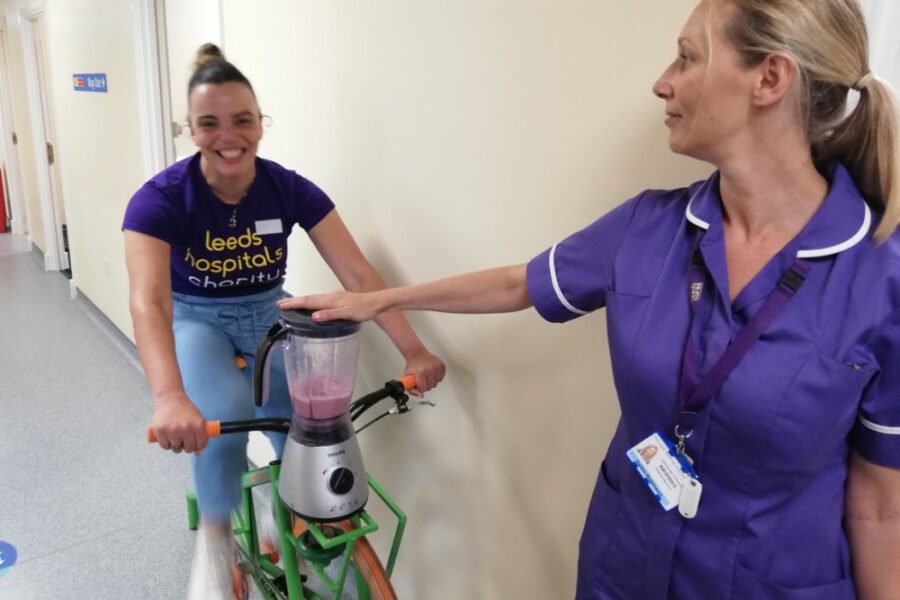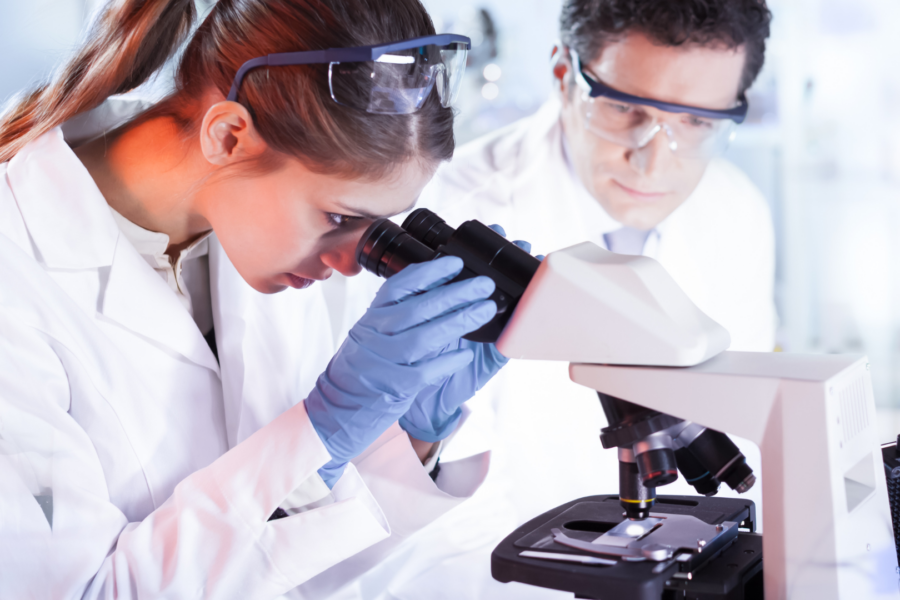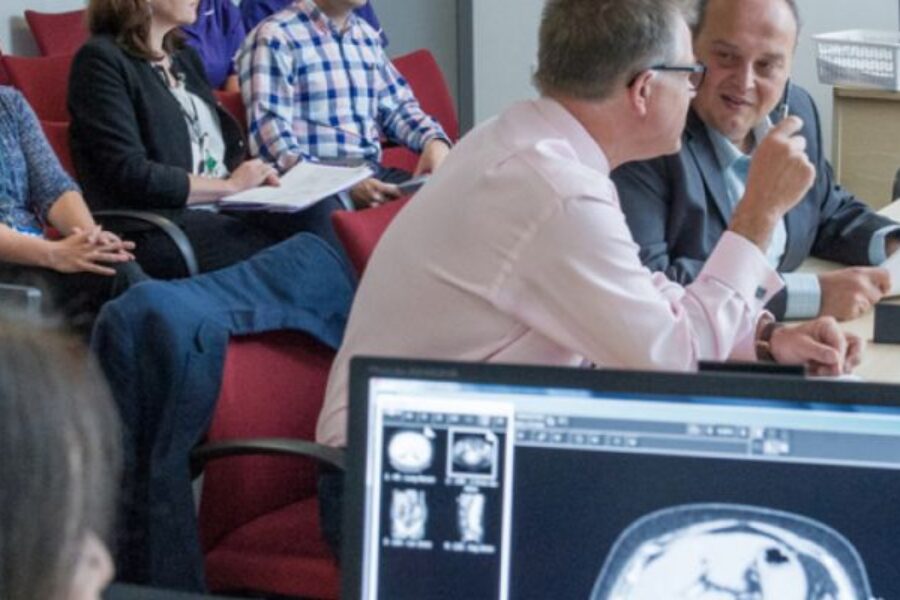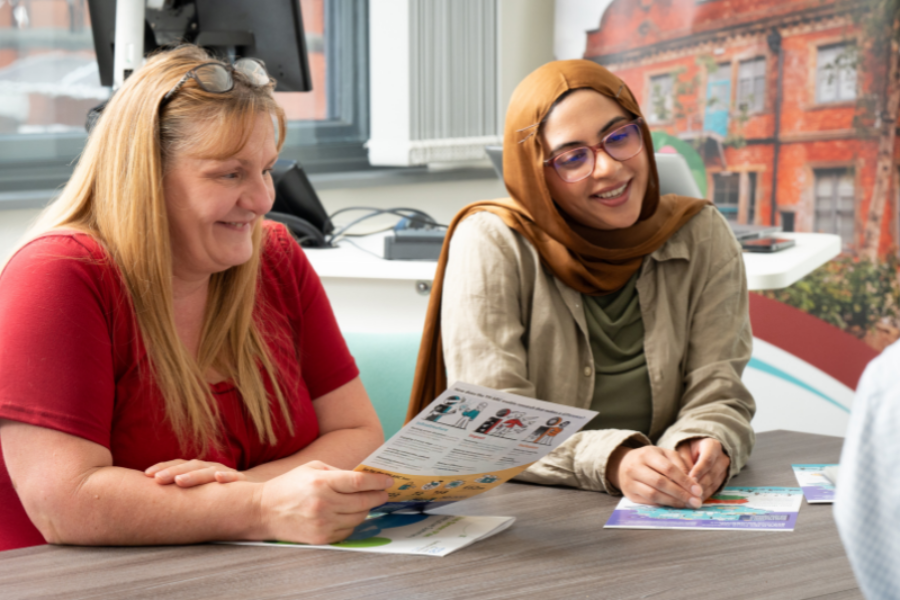The Trust has an enviable reputation for research and innovation and aims to ensure our patients benefit from advances in clinical science and technology by improving access to world-leading research studies and translating the results of research into improved patient care.
This short video showcases Leeds Hospitals’ research and innovation in advancing healthcare.
LTHT Research & Innovation Short Film
Research and innovation at Leeds is an everyday event. It’s a driving force behind transforming healthcare, providing the treatments of the future, and having a significant impact on patients’ lives—not just in Leeds but globally.
Leeds Hospitals is one of the biggest and largest NHS trusts in the UK, seeing over a million patients annually. We are one of the leading recruiters for research in the country, working across multiple specialties and areas of expertise. Though we focus on research and innovation, they are split into sub-departments like the Clinical Research Facility and the Biomedical Research Centre. We have partnerships with the University of Leeds and the University of York, and we work with various commercial clinical organizations. These partners bring high-level expertise, collaborating with patients to enable scientists and clinical researchers to deliver world-leading, impactful research.
Leeds Hospital has a very positive culture. We couldn’t have asked for a better environment. We have great people, a great atmosphere, and a strong research culture. We all work together with the same vision: providing the highest quality of care we can. We encourage staff to come up with good ideas and support each other in nurturing and training talent, guiding them towards commercialization.
Our research includes large clinical trials in cancer and heart diseases, sometimes dealing with advanced therapies. You may have heard of gene therapies, for example. Our surgical technology team is deeply interested in how wounds heal, how fractures heal, and in using robotic surgery. We’re also looking at innovations like AI (artificial intelligence) to develop better ways of working and translating those advancements into improved services for patients, ultimately improving patient outcomes.
Patients and members of the public can get involved at all stages of research. People often think that they will be hooked up to tubes or have to take tablets, but they’re surprised to find it’s not like that. My involvement has been mainly about bringing public understanding into the research proposals, helping us design studies that address the specific needs of those populations. The patient is at the heart of the research, and while I’m taking part in the trial, it’s beneficial psychologically for me. Knowing something is happening, that something’s being tried, helps us understand the disease, the nature of the treatment, and the benefits. The knowledge gained from my participation may help others.
Now is a really exciting time at Leeds. So many projects are underway, and we are in a period of growth. We want to continue improving, bringing more teams together, driving forward quality care, and ensuring the best possible patient outcomes.
Research and innovation at Leeds is world-leading, collaborative, transformative, and empowering. Be part of transforming the NHS.
Research and Innovation has a crucial role in the advancing healthcare and improving patient outcomes. Leeds Teaching Hospitals NHS Trust, one of the largest teaching hospital trusts in the United Kingdom, is actively involved in various research and innovation initiatives.
Leeds Teaching Hospitals works in partnership with academic institutions, industry partners, and other healthcare organisations to foster a culture of research and innovation. The trust comprises several hospitals. These include Leeds General Infirmary, St James’s University Hospital, Leeds Children’s Hospital, and Chapel Allerton Hospital, which serve as important hubs for research and innovation activities.

